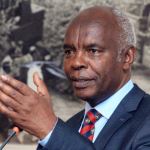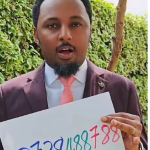Burkina Faso’s military junta has recently announced a prohibition on homosexual acts, marking a significant shift despite previous social conservatism in the West African nation where such acts were not legally restricted.
Justice Minister Edasso Rodrigue Bayala stated that the junta’s cabinet has approved legislation to criminalize these acts, although specific details were not disclosed.
Since taking power in 2022, Burkina Faso’s military has moved towards closer ties with Russia, reducing its relations with its former colonial power, France. This new legislation forms part of broader changes to marriage laws, which now exclusively recognize religious and customary unions.
Under the proposed law, which requires approval from the military-controlled parliament and junta leader Ibrahim Traoré, only religious and customary marriages will be legally recognized.
“Homosexuality and related practices will now face legal penalties,” stated the justice minister, as reported by AFP news agency.
Capt. Traoré assumed leadership after overthrowing Lt. Col. Paul-Henri Damiba in 2022, citing failures in combating an ongoing Islamist insurgency since 2015. Prior to this legislation, Burkina Faso was among the 22 out of 54 African nations where same-sex relations were not criminalized, differing from former British colonies in not inheriting anti-homosexuality laws upon gaining independence from France in 1960.
Muslims constitute approximately 64% of Burkina Faso’s population, with Christians making up about 26%. The remaining 10% adhere to traditional religions or identify as non-religious.
In recent years, several African countries have adopted stricter measures against the LGBTQ community. Uganda, for instance, recently passed legislation intensifying its crackdown on LGBTQ rights, despite facing criticism from local human rights groups and Western nations. The country’s Constitutional Court upheld a new law that includes severe penalties, such as the death penalty for “aggravated homosexuality,” which includes cases involving minors or individuals with HIV.
The adoption of this legislation led to consequences such as the World Bank suspending new loans to Uganda, and the US withdrawing preferential trade access for Ugandan goods. President Yoweri Museveni defended the law as safeguarding traditional family values and asserted Uganda’s autonomy from Western influence.
In neighboring Cameroon, reactions were mixed when Brenda Biya, daughter of President Paul Biya, publicly identified as a lesbian. Her statement aimed to challenge Cameroon’s laws prohibiting same-sex relations, which have been enforced under President Biya’s lengthy rule since 1982.
In Ghana, parliament passed a stringent bill in February that could impose up to three years in prison for individuals identifying as LGBTQ+. However, President Nana Akufo-Addo has not yet signed the bill into law, opting to await a judicial review of its constitutionality.
The finance ministry has warned of potential economic repercussions, including a loss of significant funding from international bodies like the World Bank, amid Ghana’s ongoing economic challenges and recent IMF bailout.
These developments reflect ongoing debates and actions surrounding LGBTQ rights across various African nations, balancing cultural norms, legal frameworks, and international pressures.



